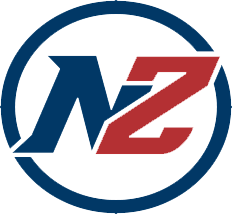Independent private schools (prep) are also options for secondary schooling for student-athletes. While NEPSAC schools are prep schools, they can vary significantly in factors like size, location, day or boarding, mission and academic expectations.
Kelly Souza attended Noble & Greenough School in Dedham, Mass., and played college hockey at New Hampshire and Boston College. She now coaches at Berwick Academy in South Berwick, Maine, and is a coach, advisor or evaluator for other hockey organizations including Assabet Valley, Seacoast and Spartans.
We spoke with Souza about the prep experience, selecting club programs and more.
Neutral Zone: How would you describe your experience at Nobles? How did that experience influence your decision to coach at Berwick?
Kelly Souza: I loved everything about my experience. Nobles challenged me to grow in almost every way. What I remember and value the most was the unconditional support I received from teachers and coaches who not only pushed me, but also inspired me to the best version of myself. At Bewick, I think the students are looking for the same things I was at that age and I remember how transformative the teacher and coach to student relationship was for me, and how much I benefited from those people that took the time to invest in me. I felt fortunate to find an opportunity to provide that experience for other student-athletes at Berwick.
NZ: How did you learn about Nobles and why did you feel it was the right path for you?
KS: I grew up in the same town as the school and attended a local private school that sent a lot of students to Nobles. I was inspired by the experiences of others, but wanted to make sure it was right for me. I looked at both day and boarding options, but Nobles was a fit for me because it allowed me to remain at home with my sisters and continue to play for Assabet. I just felt immediately connected the moment I stepped on campus. It was clear the students loved the school and the sense of school pride was infectious. But the biggest game-changer for me was feeling that I was important and valued by every administrator on campus. As a kid, that is a special and very unique feeling.
NZ: How did your prep experience influence how you coach now?
KS: I was so fortunate to have great coaches at Nobles and this gave me examples to emulate. My soccer coach, who was also my advisor, was my biggest role model. I have never experienced a coach with the combination of abilities that allowed her to be so many things to so many of us. She was invested in our lives, she cared about us, and she got the best of what we were capable of producing. Everyone who played for her wanted to be her. She is the reason I coach today, and if I can make players into believers the way she did, I know I have succeeded.
NZ: What advice would you give families or players considering the prep route? What should girls be prepared for as students and athletes?
KS: It sounds obvious, but really the best advice I can give is focus on fit and not just the sticker you’ll have on the back of your car. Every kid is different and it is important to find a place that will allow you or your child to find success, whatever that means for them. Simply put, not every school is a fit for every kid. Consider all the factors that will influence their experience, like day vs. boarding and size. For players, talk to the coaches and ask how they see you fitting and where you can contribute. Hockey was important to my experience at Nobles, but it was not necessarily the most influential. In fact, the program at Nobles was relatively weak when I arrived, but the opportunity to be a part of rebuilding it was something I embraced and it was everything that I loved about the school that helped me feel comfortable and find success.
NZ: You have been affiliated with Assabet now for a long time as both a player and coach. How have you seen the girl’s game evolve from your time as a player to now as a coach for the program?
KS: The game has grown so much and therefore so have the options. Players are bigger, stronger and more skilled. There is more depth and the teams are stronger top to bottom. Girls have so many more role models to look up to and so many opportunities available to them because of those role models who fight to grow the game. However, I think the biggest change has been in recruiting. Recruiting has dramatically changed the landscape of the game. With so many kids committing early, it leaves little room for the late developers and makes it difficult for those uncommitted to enjoy their high school experience for what it should be. Competing for their team, the pride of their school and for the love of game, not the pressure of playing DI college hockey.
NZ: What is an area of development that coaches and players should be focusing on more?
KS: This is easy. The mental game is the most underrated aspect of the game. I say it to my teams all the time. Your mental game is a huge differentiator and essential to everything you do. The separation is in the preparation. Developing these skills is crucial to your performance, your ability to deal with adversity and balancing life outside of the ice. My advice to players is to work on and develop this skill early. Make it part of your preparation. It takes practice and commitment, but it’s muscle memory, just like working on your shot, your skating or any other skill. It also doesn’t happen overnight. Practice and persistence are key.
NZ: What should families consider when looking at club options?
KS: There are so many now and it can be confusing. I think the No. y 1 factor is coaching. Especially in a player’s early years, club teams are where players develop not just the skills, but also the habits that they will be the foundation of their game. Look for a coach who not only coaches skills, but someone who teaches the game. You want to find an environment where you will be pushed and challenged, but emphasis on development is the most important factor.


